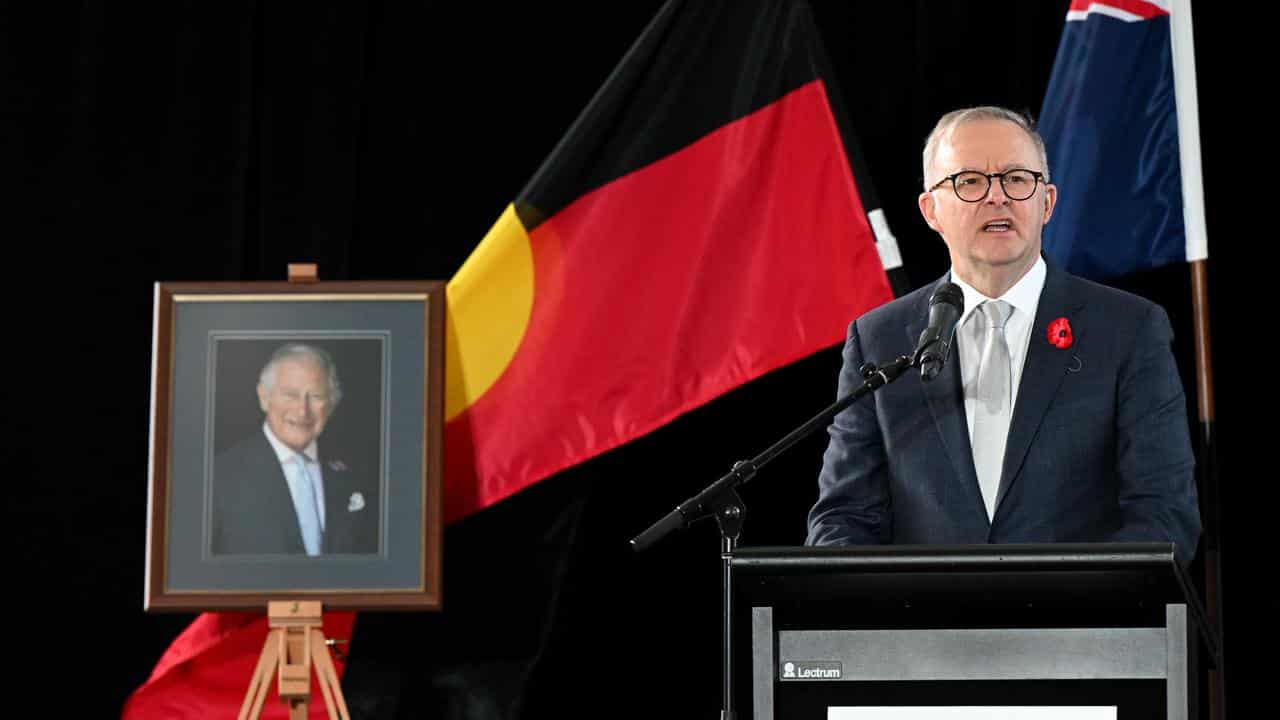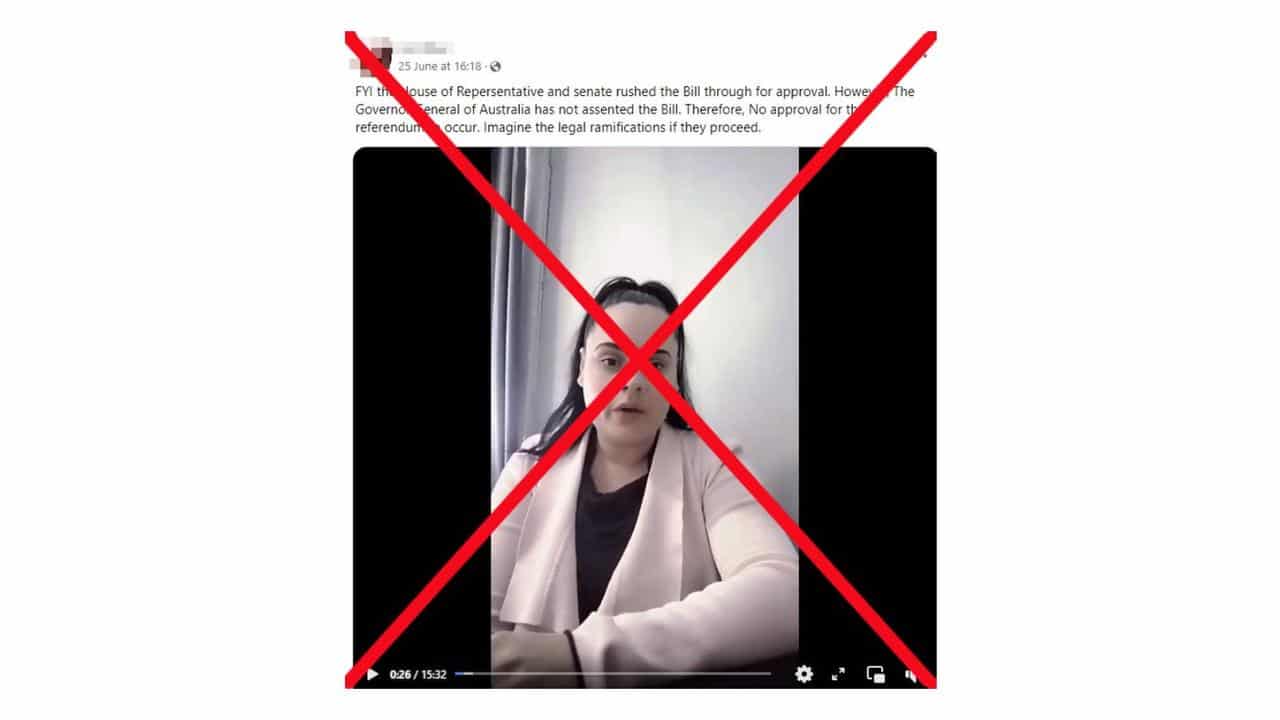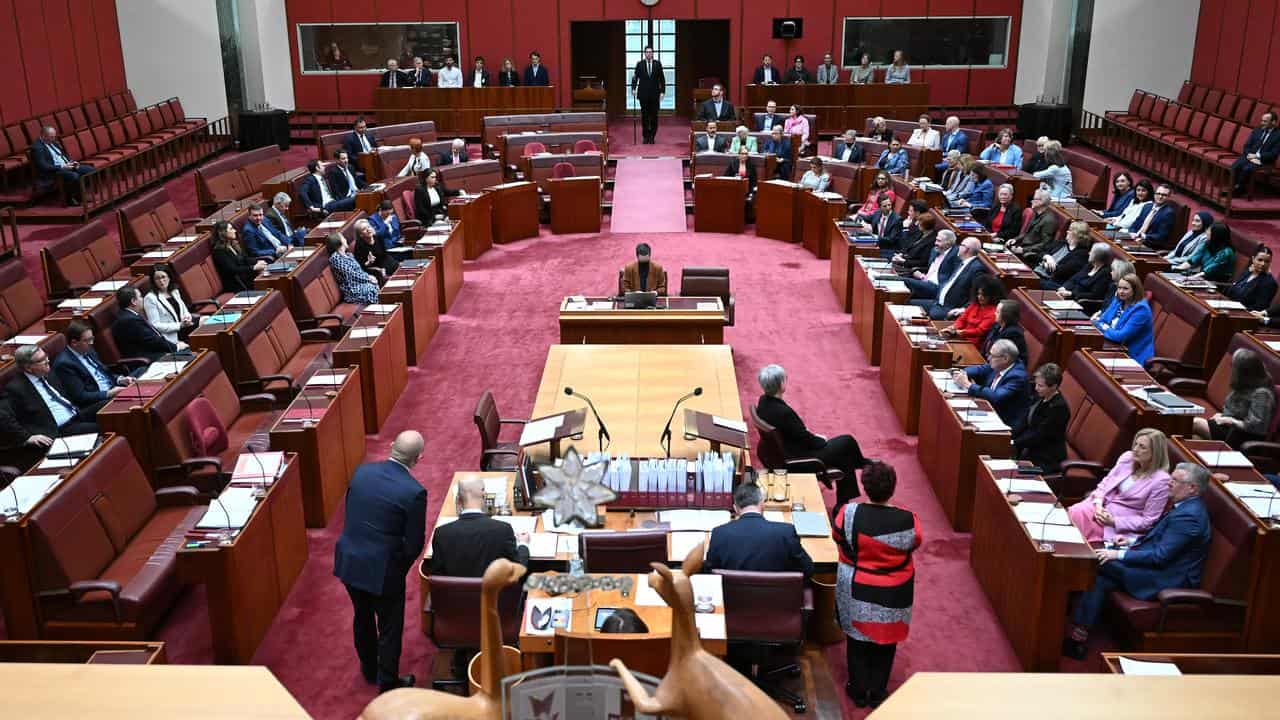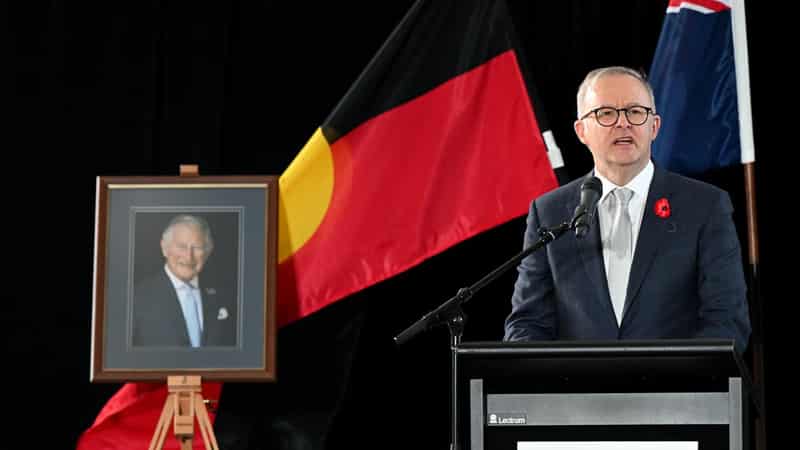
What was claimed
The voice to parliament referendum has not been approved because the governor-general has not issued the royal assent.
Our verdict
False. Constitution alteration bills do not receive royal assent until after the referendum vote and only if it is successful.
It is being claimed that there is no approval for the referendum on the proposed Indigenous voice because the constitution alteration bill has not received royal assent.
This is false. Proposed laws to change the constitution don’t receive royal assent until after the referendum vote has taken place.
"FYI the House of Repersentative (sic) and senate rushed the Bill through for approval. However, The Governor General of Australia has not assented the Bill. Therefore, No approval for the referendum to occur. Imagine the legal ramifications if they proceed," one post (archived here) said.
The claim has also been repeated in other posts here and here.

Royal assent is part of the legislative process where a representative of the monarch approves bills passed by the parliament.
The Bills Digest for the Constitution Alteration (Aboriginal and Torres Strait Islander Voice) 2023 states that: "... unlike other Bills, a proposed law to alter the Constitution must not only be passed by Parliament but must also then be voted on by the electors of Australia at a referendum before it can receive Royal Assent. As such, the effect of Parliament passing this Bill would be that the proposed constitutional amendment will go to a referendum to be decided by voters.”
Ryan Goss, an associate professor of law at Australian National University, said this process is set out in the constitution.
“Ordinarily, as section 58 of the constitution sets out, once a proposed law is passed by both the House of Representatives and the Senate, it will be signed by the governor-general on behalf of the King. This is called royal assent, and it is what turns a proposed law (a Bill) into a law (an Act). The governor-general will always give this assent.”

Dr Goss explained that Section 128 of the constitution outlines the process for amending the constitution, including the need for a referendum and a double majority result.
"It is a special process for a special sort of law," he told AAP FactCheck in an email.
"Section 128 clearly states that a proposed amendment to the constitution is not given to the governor-general for royal assent unless the proposed amendment has passed the referendum double majority requirement.
“If a proposed amendment passes the referendum requirement, the governor-general signs it into law; if it doesn’t pass the referendum requirement, the governor-general cannot sign it into law.
"There are no tricks here."
A record of then Governor-General Richard Gavin Gardiner Casey assenting to the Constitution Alteration (Aboriginals) bill following the successful 1967 referendum can be viewed here.
The Australian Electoral Commission is also debunking misinformation relating to the referendum process here.
The Verdict
The claim there is no approval for the voice referendum because it has not received royal assent is false.
Bills to alter the constitution are passed following a successful referendum vote and then receive royal assent by the governor-general.
False – The claim is inaccurate.
AAP FactCheck is an accredited member of the International Fact-Checking Network. To keep up with our latest fact checks, follow us on Facebook, Twitter and Instagram.









